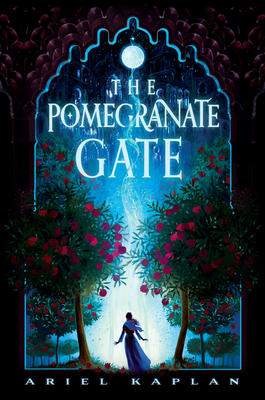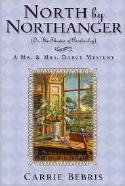This review contains affiliate links, which earn me a small commission when you click and purchase, at no extra cost to you. Thank you for supporting my small business and allowing me to continue providing you a reliable resource for clean book ratings.
Toba Peres can speak, but not shout. She can walk, but not run. She can write with both hands, in different languages, but has no formal education. And the only treasure Toba has dared to keep is a star sapphire, set in a necklace she must keep hidden and never take off.
Naftaly Cresques sees things that aren’t real and dreams things that are. He’s a well-trained tailor of middling skill, and he is risking his life to smuggle a family heirloom: a centuries-old book he must never read and never lose.
When the order is given that all Jews are to convert or be exiled with nothing, Toba and Naftaly, along with thousands of others, are forced to flee their homes. Among the crush of the refugees, Toba is accidentally separated from her family and then from the caravan itself. There, in the wilderness, she stumbles through a strange pomegranate grove into the magical realm of the Maziks: terrible, mythical beings with immense power. Impossibly, she seems to possess latent abilities of her own, and before she knows it, she’s pulled into the crosshairs of bloodthirsty immortals who may be the key to her survival.
Meanwhile, on the other side of the pomegranate gate, Naftaly, intent on rescuing Toba, finds himself among new companions who harbor dangerous secrets of their own.
Hunted by an Inquisition in both worlds, Toba and Naftaly must unravel ancient histories and ancient magics in order to understand the link between the two realms. Because in the end, more than their own lives might be at stake.
The Pomegranate Gate is set in a fantasy version of Spain in 1492. The Reconquista is over, and Christian rule has been reestablished over the entire Iberian peninsula. That means the kingdom’s Jews, who had prospered under Muslim rule, were presented with a sudden choice: convert to Christianity or leave the land, their livelihoods, and all their belongings and money. This was a time period I knew nothing about, and while I found it fascinating to see such an unknown history tangled within a fantasy including djinn, it took me a while to place the story’s setting, visualize the land, and get my bearings.
In many ways, this book feels like a prequel, setting the stage for what is going to come next (and it is the first in a series). The pacing can be tedious at times, the story building momentum only to fizzle out, and the characters seem to flounder with no real sense of purpose, tension, or drive.
That said, I did enjoy the lyrical, dark fairy tale writing style, and the story as a whole represented folklore and history in a beautiful and, at times, tragic way.
Rated: Moderate. Profanity includes 3 uses of strong language, 2 uses of moderate language, and 28 uses of mild language. Violence includes injury, blood, and multiple deaths by various means, all of which border on being gory. Sexual content includes countless innuendos, references to male body parts, and scenes in a bathhouse where men and women mingle together naked. Characters are drugged against their will.
Click here to purchase your copy of The Pomegranate Gate on Amazon.




